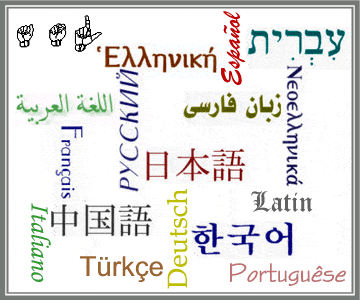“How about the research.”
She stated it just like that, a question phrased as a sentence, and looked expectantly on. The man was baffled.
“Yes, I’m doing research,” he responded.
“So how about it.” She responded, a short, monotone sentence again.
I knew what she was trying to ask was, “How is your research going?” She lacked the inflection of the voice that denotes a question mark at the end of English sentences (in Chinese, you instead add another syllable, usually ma, to ask a question). She used “how about” interchangeably with “how is.” While this woman, originally from China, knew such a high level of English (she was at graduate school in the U.S.), she still fell into a specific pattern of speaking.
And yet, as a native English speaker, I still understood her — but the researcher didn’t. Why?
I think the answer lies in an additional language, an accidental tongue, that you acquire when you go abroad or hang out with many immigrants. When people learn to speak English, they often make recurring small mistakes. I do the same thing in Chinese — making basic errors even as I add more advanced vocabulary or phrasing to my repertoire. As a native English speaker abroad in China, I started to notice patterns in the simple errors amidst my Chinese friends’ advanced English. In my mind, I would “translate” their English phrases (that would normally mean something else) into the underlying and intended meaning, rather than interrupting each time with a correction.
But if you don’t go abroad, or if you don’t interact with many non-native English speakers, you don’t speak this dialect of English — the foreigners’ dialect. You’ll never completely understand your own language, because you have not tried to understand someone else’s. Because even if that English is not standard, “proper” English, it can still convey meaning and engineer a conversation or even a friendship.
This is a language that is easy to learn and easy to accidentally acquire, but we don’t often consciously try to do so. We consciously take classes in various foreign languages, often from a young age and as a requirement, and yet there is no requirement for us to patiently piece together what someone might say to us in broken English. Yet this is so useful in so many aspects of life — if you’re a teacher, or a doctor, or a businessperson — being literate in the various permutations of your own language can help you extend your influence.
That’s why I feel so blessed to have had the opportunity to live abroad, especially in a country where more and more people want to learn my language even as I learn theirs. Accidentally, we’ve both unconsciously learned a language of understanding that is perhaps as important as our native languages in helping us successfully communicate."那研究呢?"她像这样说着,
"是的,我正在做研究。"他回应着。"那它怎么样了?"
这是为什么呢?
我想答案就在于这是一种额外的语言,
就是这样的语言,很容易学,也很容易意外的获得,


